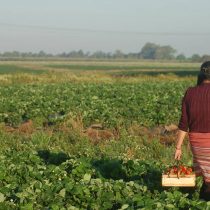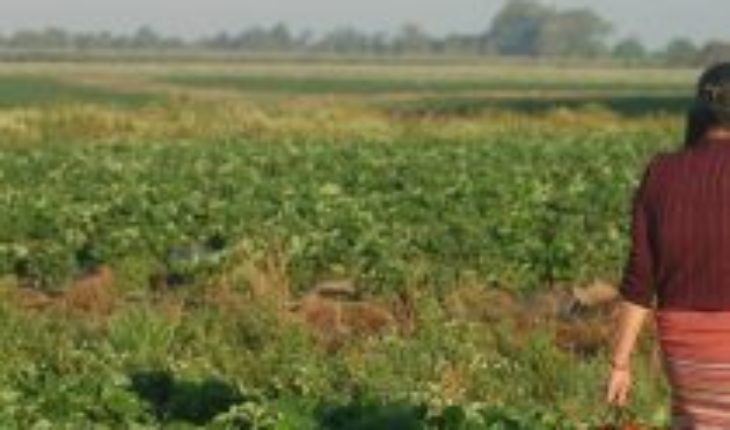
The health crisis that affects Chile and the world these days, in addition to highlighting the shortcomings of our health systems, has also highlighted the notorious inequalities arising from the different geographical location. This situation translates into inequities between the opportunities given in the city versus those of the Chilean countryside in areas such as SME development, growth and positioning both in health crises, and in turn the water crisis that affects our rural communities more time ago. Indeed, many of our family farmers undermined the delivery of vegetables and vegetables to small and medium-sized entrepreneurs, who closed premises as a result of the health crisis and its economic variants.
There is the important challenge of recovering the rurality of our country, understood in its economic dimension, but also as a way of life endowed with its own specificity. Seeing this as an opportunity, we will be able to overcome old conceptions of the countryside as a simile of illiteracy, labour precarization, and, ultimately, almost as a permanent object of aid or subsidy. UNa new way of relating to rurality, with a new language of increasing economic production, through innovation and new sources of jobs, will put the field and its communities as subjects of its own development.
The figures support the importance of agriculture to our region. Today family farming in our country is concentrated at almost 75% between Maule and Los Lagos. In the Maule, O’Higgins and Araucanía regions, the share of agricultural employment exceeds 20%, where our region contributes to foreign trade, according to the INE, $181.1 million by the first quarter of 2020, finding China among the top buyers.
During this health crisis resulting from COVID-19, the possibility of transport, sale and delivery of products from the field is diminished, slowing production growth both small and medium-sized farmers and fishermen, positioning 6.2% unemployment in the first quarter of 2020 for such items.
This leads us to reflecting the importance of considering international experiences that led to productive development and economic growth based on public and private initiative with a strong burden on innovation and the use of internet technologies, and what do I mean by this? Increase and bring the current training proposals that INDAP and SERCOTEC has presented (fully valued) to our family farmers.
It is our role to return this discussion to the technical and, through innovation, to give the role and appreciation to the contribution made by our farmers, in order to improve their quality of life and provide new productive tools, so that this crisis is a gateway to new ideas, to the development and diversification of the economy.
For example, international initiatives such as China’s case with its Taobao Villages, initiatives that enable the online sale of farmers, are transforming rural China, providing sources of jobs to people who train in digital literacy, engineers in management design, and connecting them with designers and advertisers to position the rural expansion strategy. The initiative described has helped to raise the quality of life and convenience for millions of rural Chinese, only from the strong desire to integrate the field and technology.
The advent of digital platforms has spurred the growth of rural enterprises and the way rural Chinese citizens consume and produce. In the Chinese countryside, more and more people find information online, order products in digital markets, and even sell their own products on e-commerce platforms such as Taobao, positioning them as new competitive players in cities, new competition for big supermarkets, and new ways to provide warehouses.
Finally, taking as an example the business model, rural Chinese, there is no doubt that it could be implemented and replicated in our country. Its application would be of tremendous use not only in time without a pandemic, but above all, during the contingency.
This is built by combining several elements, on the one hand political will, a necessary paradigm shift and the contribution of inputs to farmers for the development of the policy presented above, training of online sales processes, with their corresponding follow-up, among others; all of which creates a virtuous chain that will demand labor and give dynamism to generally depressed economies in our rural areas.
Mixing the wisdom of the common sense of the Chilean countryside, with proven experiences, opportunities are opened up in public decision-making for a new economy for Chile.
The benefits would be gigantic in growth and transformation of family farming in Chile through the impact of e-commerce on the economy, e-commerce would approach from urban cities to rural communities where primary production occurs, state-promoted E-commerce will create new opportunities to improve living standards and provide a new market in times of contingency. Establishing viable and safe platforms, protected in its development and tendered by the state will allow us a diverse economic growth, with a human face and in harmony with the needs and specificities of the Chilean countryside.
The content poured into this opinion column is the sole responsibility of its author, and does not necessarily reflect the editorial line or position of El Mostrador.





